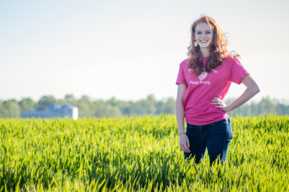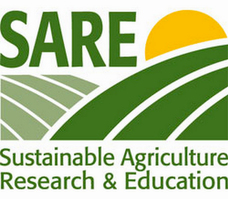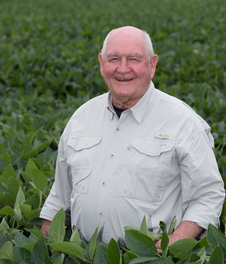|
Having trouble viewing this email? View it as a Web page.

|
|
|
Editor: Kelly Sprute April 18,
2018

Preventing
Financial Exploitation of Older Adults
Exploiting an older adult’s financial resources is the
third most common form of abuse. Losing assets that have been accumulated over
a lifetime can have devastating financial consequences for the victim and can
also lead to greater need for public support like Medicaid. Financial
exploitation is often accompanied by other types of abuse and neglect, which
can impair the victim’s health and shorten their life. Exploitation can also
damage the victim’s sense of security and trust. Because the perpetrator is often
an adult child or other relative, financial exploitation of an elder can have
major impacts on entire families. Researchers at land-grant universities across
the country are working together to get a more holistic understanding of the
personal, family, social, and cultural factors that increase or decrease its
likelihood. This work will help protect older Americans from financial
exploitation and prevent psychological and economic damage to families and
society. Read
the full Multistate Research Fund impact.
Photo: Many older
Americans are at risk of financial exploitation. This risk is especially high
for those over age 70 and women.
|
|
 4-H Youth is
'Making a Difference' One Community Food Pantry at a Time
Sometimes, to make a difference, you just have to take
matters into your own hands. That’s exactly what 4-H’er Mackenzie Hinson did in
Mount Olive, North Carolina. As a result, thousands of area residents worry
less about finding healthy food to eat.
“Kenzie” was a 10-year-old member of Jordan's Chapel and
Bowevelle 4-H clubs when her life changed forever. “I did a speech, ‘Hunger in
Our Communities,’ for a 4-H competition and learned how many people in my
community and state suffer from hunger,” she said. “It was a problem right
here!”
USDA’s National Institute of Food and Agriculture is the
home of 4-H National Headquarters. The 4-H Youth Development Program is the
youth outreach program from the land-grant institutions’ cooperative extension
services. 4-H creates positive learning experiences; positive relationships for
and between youth and adults; positive, safe environments; and opportunities
for positive risk taking. Read
the full NIFA article.
Mackenzie Hinson is
making a difference by operating a food pantry in Mount Olive, North Carolina.
(Photo by Craig Ladd)
|
 SARE State
Summaries and Grants Lists Available
Sustainable Agriculture Research and Education (SARE)
program has been a go-to USDA grants and outreach program for farmers,
ranchers, researchers and educators who develop innovations that improve farm
profitability, protect water and land, and revitalize communities. SARE has
awarded over $251 million to more than 6,300 projects. Learn more about funded
grants, project highlights and a breakdown of funding in your state using our
newly updated portfolio summaries and grant lists.
|
 Virginia Tech Researchers
Compare Apples, Pears, Discover Link Between Sex, Fat
When it comes to fat accumulation, men tend to carry more weight
around their abdomens and women tend to carry more weight around their hips and
thighs, but the mechanical reason for the difference has remained a mystery. The apple-shaped body has been
associated with higher risk of developing metabolic syndrome, largely because
of increased accumulation of visceral fat around the waist. A recent study
by Virginia Tech researchers discovered a cell that explains why men and
women store body fat differently. Read the full Virginia Tech story.
Photo by Yves Geissbühler/CC0.
|
 Secretary Perdue
Statement on Release of 2018 Farm Bill
U.S. Secretary of Agriculture Sonny Perdue issued
the following statement on the release of the 2018 Farm Bill: “I applaud
Chairman Conaway and the House Agriculture Committee for their diligence and
hard work in crafting the 2018 Farm Bill. The trend of low commodity prices
over recent years and headlines about trade disputes have caused anxiety among
agricultural producers these days, so this legislation is critically important
to give them some much-needed reassurance. In my travels across the country, I
have found that farmers have confidence in President Trump’s ability to
negotiate strong trade deals with other nations, but they also want a strong,
bipartisan Farm Bill that puts their needs above Washington, D.C. politics.
While there is still much work to be done, I am pleased that this Farm Bill
aligns with many of the principles
USDA released in January. I look forward to working with the Agriculture
Committees and members of Congress from both sides to pass a comprehensive Farm
Bill in a timely fashion to provide the needed support and certainty to our
farmers. The Trump Administration has made rural prosperity a priority for the
country, and a Farm Bill that works for agriculture is a key component of the
agenda.”
|
NIFA’s Institute
of Food Safety and Nutrition April Seminar
Dr. Leslie Cunningham-Sabo, associate professor in Food Science and Human
Nutrition with Colorado State University, will present a webinar titled
“Considerations for Dissemination and Adoption of School-Based Childhood
Obesity Prevention Programs” April 23, from 3- 4 p.m., EST. The seminar can
be viewed via WebEx and is part of the Institute of Food Safety and
Nutrition Seminar Series. These monthly seminars aim to
disseminate new knowledge, engage with partners and stakeholders, and inspire
the next generation of food safety and nutrition experts. Visit the NIFA for
more webinar information.
|
|
|
NIFA’s mission is to invest in and advance agricultural research, education, and extension to solve societal challenges. NIFA’s investments in transformative science directly support the long-term prosperity and global preeminence of U.S. agriculture.
If you wish to submit a news item or information, send an email to NIFAUpdate.
USDA is an equal opportunity lender, provider, and employer.
|
|